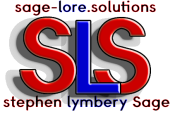RIGHTS
Understanding Dominion, Rights, Their Relationship,
and Their Application in the
Commonwealth of Australia Constitution Act 1901, as Proclaimed and Gazetted.
Do any sections of the
Commonwealth of Australia Constitution Act 1901, as Proclaimed and Gazetted
negatively effect the rights or dominion of the people within the
Commonwealth of Australia*
(as defined in the original Acts Interpretation Act 1901).
Dominion: Dominion refers to having control or authority over something.
In the context of individuals, it means having control over oneself,
one’s actions, and the choices one makes.
Dominion is closely tied to the idea of personal freedom and autonomy.
It means having the ability to decide how to live your life,
as long as you don’t harm others or infringe upon their rights.
Rights: Rights are the fundamental entitlements that
every individual possesses.
They are like a set of rules that protect people’s freedom,
dignity, and well-being.
Rights ensure that we are treated fairly and with respect.
Examples of rights include the right to life,
liberty, education, healthcare,
and freedom of speech.
Rights are essential for a just and inclusive society.
Relationship between Dominion and Rights:
Dominion and rights are closely interconnected.
Dominion allows individuals to exercise their rights freely,
as long as they do not interfere with the rights of others.
For example, the right to freedom of speech
maintains the individuals power to express their opinions and ideas,
which is a part of their dominion.
However, while this right has no limits,
when it comes to speech that can harm others,
the Common Law of England,
when in application,
holds people to account for their actions and is evidence based,
not opinion based.
Terms such as “hate speech”and “false information”
are often applied in an attempt to
stifle debate and keep facts hidden.
The onus of proof is on the one who makes the claim,
facts don’t care about your feelings.
“HE WHO BEARS FALSE WITNESS…” is held accountable
under the “Common Law of England”
In a societal context, the phrase serves as a reminder that
trust and credibility are crucial
for maintaining healthy relationships and a functioning community.
It encourages us to question information and claims,
to seek the truth, and to be critical thinkers
rather than blindly accepting or spreading falsehoods.
Ultimately, “he who bears false witness”
reminds us of the moral imperative to be truthful
and to refrain from intentionally misleading others.
It underscores the importance of
integrity,
accountability,
and the ethical responsibility
to consider the impact of our words and actions on those around us.
The Commonwealth of Australia Constitution Act 1901,
as Proclaimed and Gazetted
is an important document establishing the
Commonwealth of Australia as a federation.
The Commonwealth of Australia Constitution Act 1901,
as Proclaimed and Gazetted
outlines the structure
of the “Commonwealth of Australia government*”
and the distribution of powers between
the federal government and the states.
The Commonwealth of Australia Constitution Act 1901,
as Proclaimed and Gazetted
does not explicitly mention individual rights,
it gives no dominion or rights,
nor does it remove the dominion or rights of the people.
Dominion and Rights are Granted
(assured, promised, guaranteed) by the creator
The Commonwealth of Australia Constitution Act 1901,
as Proclaimed and Gazetted. The Parliament of the Commonwealth
under the Constitution provides the framework for governing
the “Commonwealth of Australia Government”
in the administration of the nation.
Whereas the people are the stewards
of the public servants serving the people
It is time for the people to regain this stewardship
The Evidence
